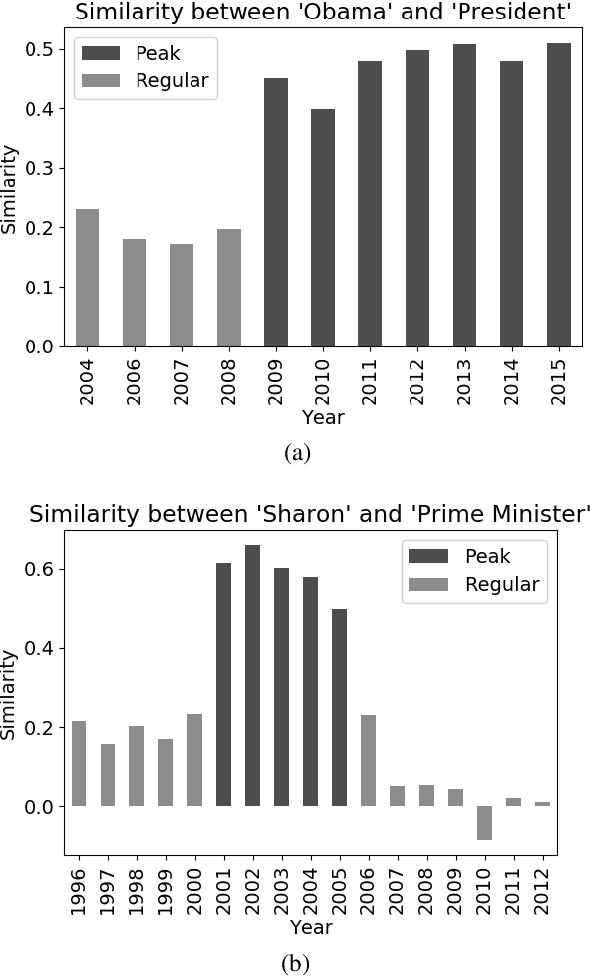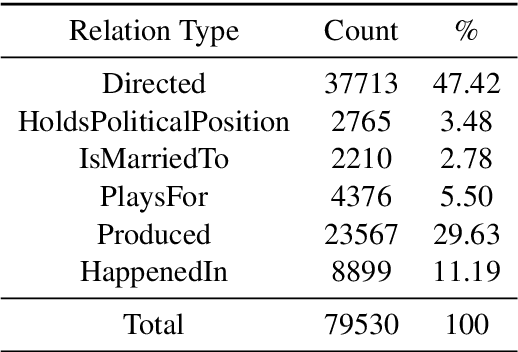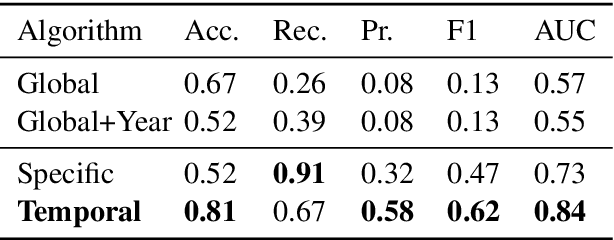Learning Word Relatedness over Time
Paper and Code
Jul 30, 2017



Search systems are often focused on providing relevant results for the "now", assuming both corpora and user needs that focus on the present. However, many corpora today reflect significant longitudinal collections ranging from 20 years of the Web to hundreds of years of digitized newspapers and books. Understanding the temporal intent of the user and retrieving the most relevant historical content has become a significant challenge. Common search features, such as query expansion, leverage the relationship between terms but cannot function well across all times when relationships vary temporally. In this work, we introduce a temporal relationship model that is extracted from longitudinal data collections. The model supports the task of identifying, given two words, when they relate to each other. We present an algorithmic framework for this task and show its application for the task of query expansion, achieving high gain.
 Add to Chrome
Add to Chrome Add to Firefox
Add to Firefox Add to Edge
Add to Edge